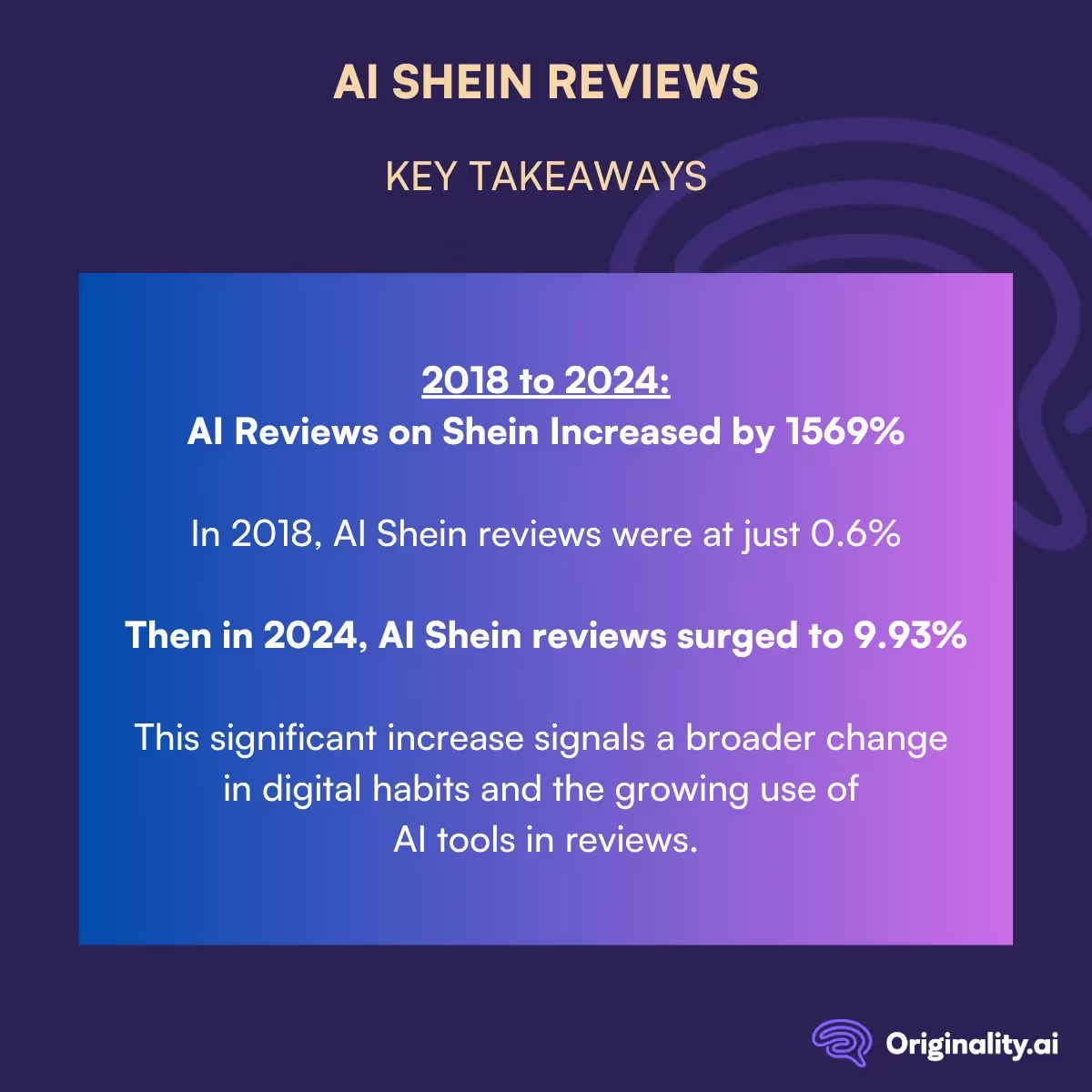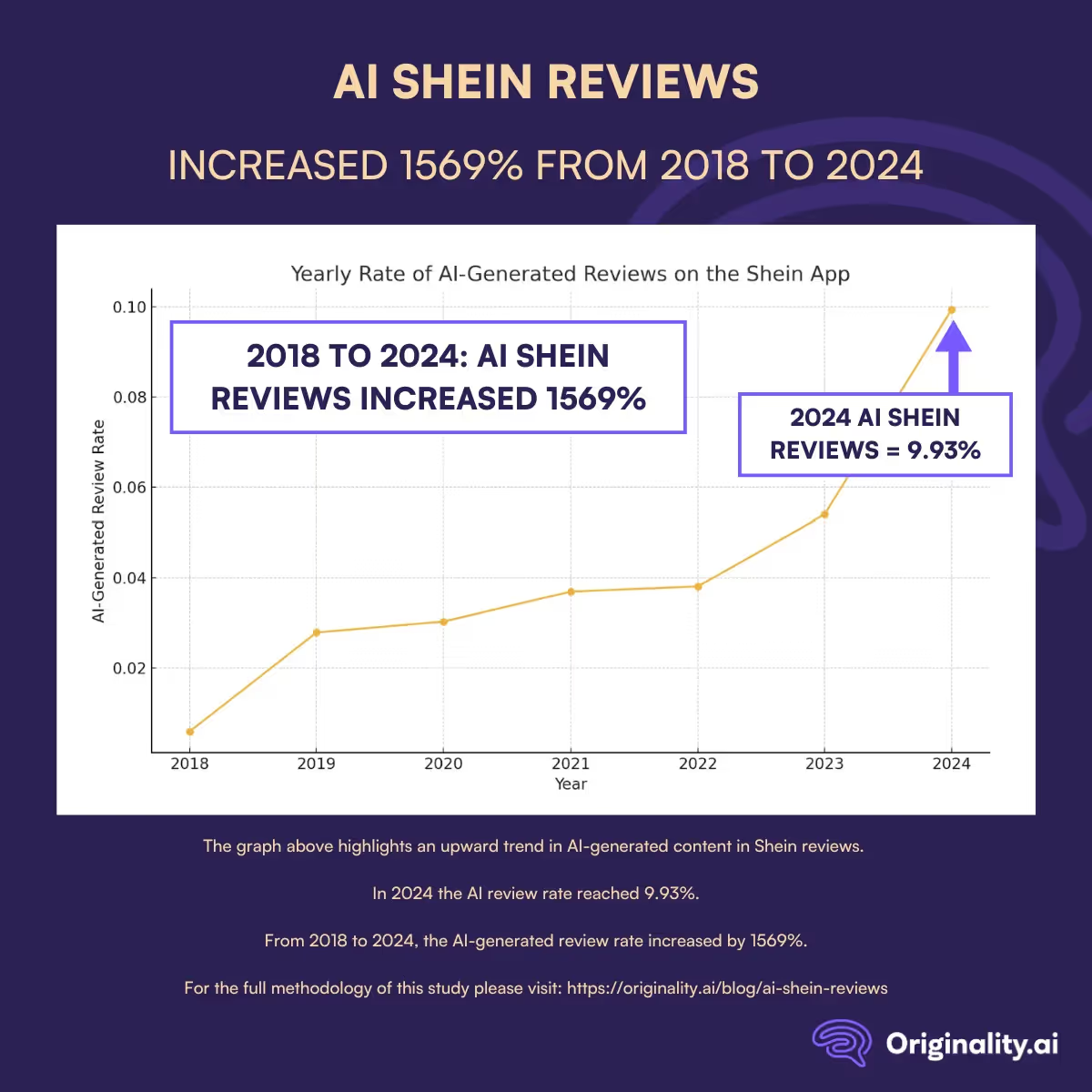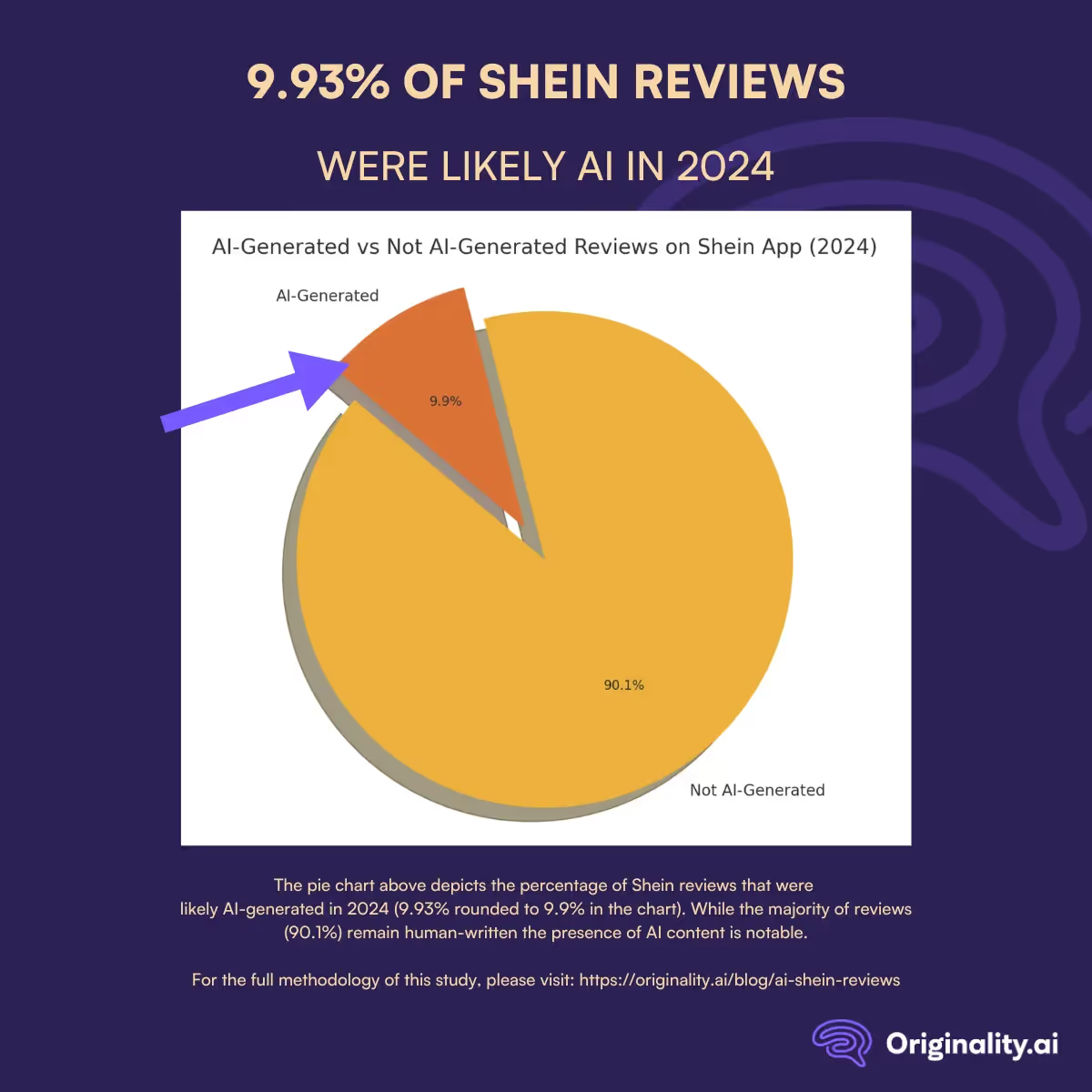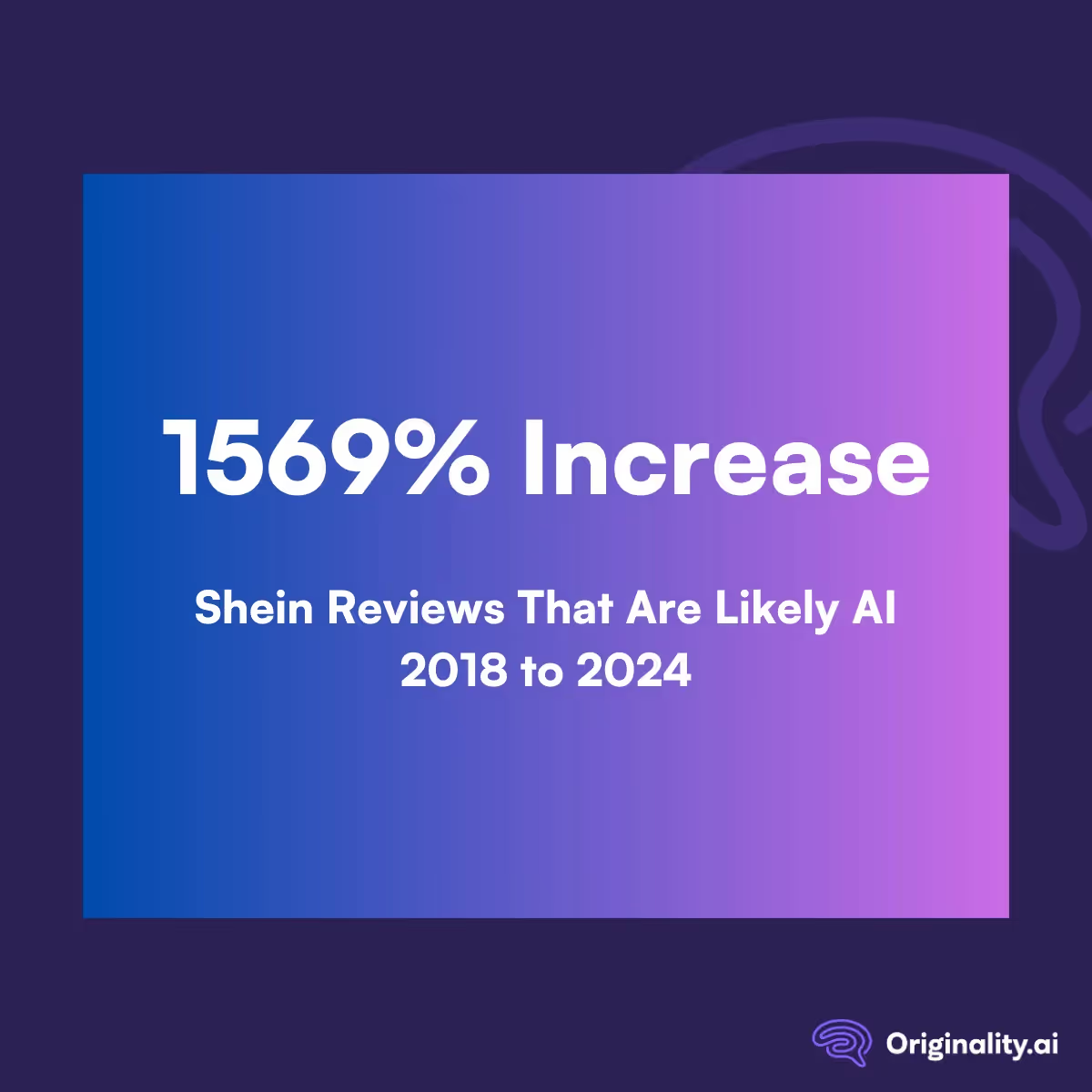The importance of legitimate customer reviews cannot be understated.
When purchasing a product from a new brand, many users will look to authentic reviews as a signal of whether or not they can be trusted.
But what if that trust was getting eroded by an over-reliance on generative AI?
This study investigates the rate and potential implications of AI-generated reviews, specifically on the Shein shopping app.
According to Statista, following the company’s rebranding to “Shein” in 2015, it became hugely popular, and in 2024, it was the second most downloaded shopping app globally with 235 million downloads.
Considering the popularity of Shein, the objective of our study was to analyze a large dataset of app reviews spanning multiple years (from 2018 to 2024) to identify trends in the occurrence of AI-generated reviews and evaluate their proportion relative to user-generated content.


The analysis reveals a notable upward trend in the proportion of AI-generated reviews on Shein.
In 2018, the rate of reviews identified as AI-generated was approximately 0.6%, which gradually increased over the subsequent years. By 2024, this rate had risen to 9.93%.
This represents an overall 1569% increase in AI reviews from 2018 to 2024.
The sharp rise in AI-generated reviews observed particularly in recent years may reflect broader technological advancements, as well as strategic moves by various stakeholders aiming to influence consumer decisions through automated content.

The significant rise in AI-generated reviews over the last few years suggests that there is a noticeable shift taking place in how often users and brands are using generative AI for reviews.
The rising proportion of generative AI reviews is likely due to the continued improvements to generative AI models like ChatGPT, alongside increased usage and adoption as they become more mainstream and accessible.
It may also be due to brands understanding the importance of customer reviews for converting leads into new customers, which could have implications for the trust users place in a platform.

This large increase has some significant implications. As we have touched on in previous studies, the growing presence of AI-generated content within Shein reviews could significantly impact consumer trust and cloud decision-making.
If consumers become aware that AI-generated reviews are being used to manipulate ratings and misrepresent customer sentiment, this could lead to lasting mistrust in both the brand and the platform in question.
These findings emphasize the need for enhanced review authenticity verification, such as through AI detection methods, and greater transparency from platforms.
App developers, businesses, and regulators must collaborate to develop strategies that mitigate potential negative impacts while harnessing AI ethically to preserve consumer confidence in digital marketplaces.
Overall, it’s clear from the results of this study that the presence of generative AI is increasing across online marketplaces and platforms.
As generative AI’s influence continues to increase, so does the importance of reliable, robust AI content detectors to ensure consumers are transparently aware of what they’re reading and where it has come from.
From our study, a notable portion of Shein reviews now show signs of AI content generation. As e-commerce continues to grow and reach new heights, the need for authentic and real customer reviews does as well.
To maintain authenticity and transparency with users, Shein must consider the following:
Do you have concerns over whether a post or review you’re reading might be AI-generated? Use the Originality.ai AI detector to find out.
Read more about the impact of AI on online platforms:
This study employed a systematic process of data collection, preprocessing, AI detection, and analysis to assess the prevalence of AI-generated customer reviews on the Shein mobile app. A dataset of Shein reviews was collected in CSV format, containing attributes like review ID, content, ratings, engagement metrics, timestamps, replies, and app source.
Reviews with fewer than 50 words were excluded. The AI detection process used the Originality.ai API, which returned an AI likelihood score and a binary classification (AI or human). Error handling with retries ensured robustness in API calls.
Processed data, including AI detection results, was saved periodically to avoid loss. The final dataset was analyzed for trends in AI-generated content across ratings, engagement levels, and time. This structured approach provided reliable insights into the impact of AI-generated reviews on consumer behavior in online retail.

According to the 2024 study, “Students are using large language models and AI detectors can often detect their use,” Originality.ai is highly effective at identifying AI-generated and AI-modified text.